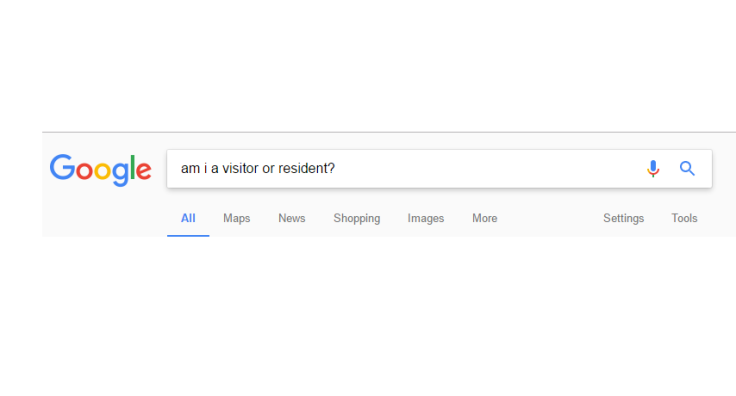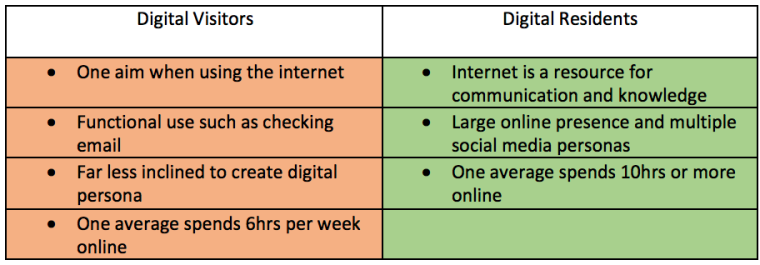
Topic 1: A reflection
Prior to writing my first blog post, I overestimated the extent to which I was a digital resident, I anticipated that blogging would be a lot less challenging than the psychology modules that constitute my degree because I use the internet daily. However, I was wrong; I have quickly discovered that blogging is challenging in its own respect.
Following this, topic one required an exploration into the terms Digital Visitor and Digital Residents (White & Cornu, 2011).
Continue reading →














